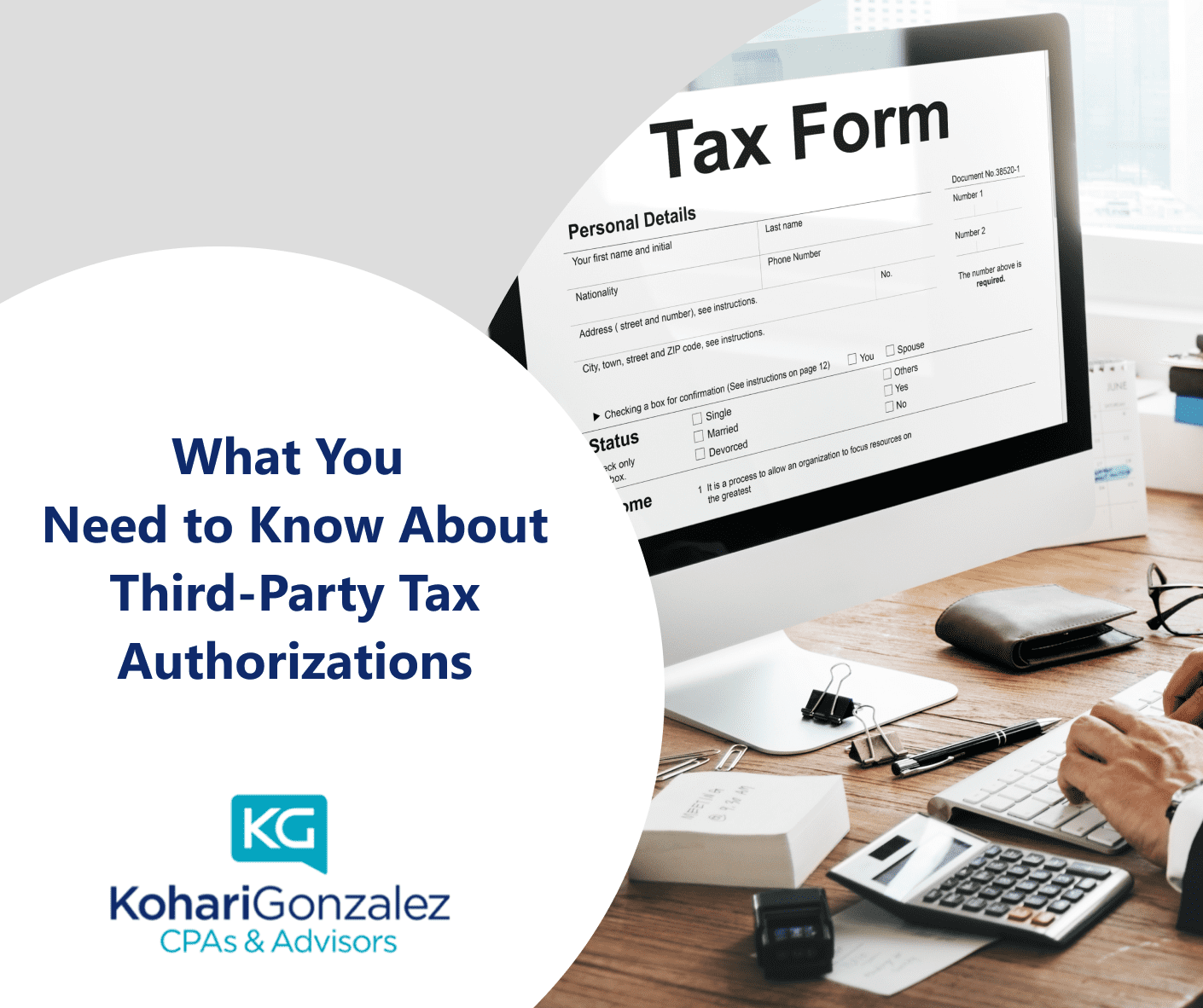
Article Highlights:
- Power of Attorney
- Tax Information Authorization
- Third Party Designee
- Oral Disclosure
You might occasionally need to give permission for a third party to represent you in IRS transactions due to the intricate world of financial and legal affairs. Representation by a third party can be a useful instrument. However, how do you handle the many permission kinds?
You can provide permission to a third party to assist you with federal tax issues. Depending on the permission, the third party may be a friend, relative, tax expert, lawyer, or business colleague. Third-party authorizations come in several forms:
Power of Attorney
When dealing with the IRS, a specific form, Form 2848 – Power of Attorney and Declaration of Representative is used to authorize an individual to represent you before the IRS. This form allows the individual you authorize to receive confidential tax information and act on your behalf in IRS matters.
Your representative must be an individual eligible to practice before the IRS. This includes:
- Attorneys, certified public accountants (CPAs) and enrolled agents.
- Enrolled retirement plan agents and enrolled actuaries with respect to Internal Revenue Code sections described in Circular 230.
- Unenrolled return preparers, family members, employees and students under special and limited circumstances.
Until you cancel a Power of Attorney or your representative withdraws from it, the authority remains in force. Revoking a Power of Attorney prevents your agent from accessing your private tax information and from representing you in IRS proceedings for the topics and time frames specified in the document.
There are 2 ways to revoke a Power of Attorney authorization:
1. Authorize Power of Attorney for a new representative for the same tax matters and periods/years. A new authorization will automatically revoke the prior authorization.
2. Send a revocation to the IRS. Follow Revocation Instructions, Form 2848, Power of Attorney and Declaration of Representative.
Tax Information Authorization
The form allows you to:
- For the tax concerns and years/periods you select, choose a designee to examine and/or receive your sensitive information verbally or in writing.
- Provide your tax information to someone who isn't trying to settle your tax dispute. For instance: A background check or income verification mandated by a lender.
A designee is never allowed to endorse or negotiate your refund check or receive your refund via direct deposit. A Form 8821 does not authorize your designee to:
- Speak on your behalf;
- Execute a request to allow disclosure of return or return information to another third party;
- Advocate your position regarding federal tax laws;
- Execute waivers, consents, closing agreements; or
- Represent you in any other manner before the IRS.
No other person may be designated as your approved designee by the designee.
Until you cancel it or your designee withdraws it, a Tax Information Authorization remains valid. Your designated recipient will no longer have access to your private tax information for the topics and time periods specified in the permission if you cancel it. To withdraw a Tax Information Authorization, you have two options:
1. Authorize Tax Information Authorization for a new designee for the same tax matters and periods/years. A new authorization will automatically revoke a prior authorization.
2. Send a revocation to the IRS. Follow Revocation Instructions, Form 8821, Tax Information Authorization.
Third Party Designee
To grant this authority, no specific paperwork has to be submitted. A person the IRS can get in touch with regarding your tax return might be designated on your tax form. This gives the IRS permission to give the designee a call in order to address any queries that could come up while processing your return. Moreover, a Third-Party Designee may:
- Give the IRS any information that is missing from your tax return;
- Call the IRS for information about the processing of your return or the status of your refund or payment(s);
- Receive copies of notices or transcripts related to your return, upon request; and
- Respond to certain IRS notices about math errors, offsets, and return preparation.
Authority is restricted to that particular tax form, the time frame for filing the return, and problems arising from processing that particular return. This authorization will automatically expire after one year, not including extensions, on the day when the tax return is due.
Oral Disclosure
You can authorize the IRS to give your tax preparer, a friend, a family member, or any other person you designate to receive oral disclosure during a conversation with the IRS access to your confidential tax information if you bring someone else along for the call or interview.
An oral consent is only valid during the dialogue during which it is given. Oral authorization is automatically withdrawn at the conclusion of the conversation, unless you specifically express otherwise. The IRS will not be able to share your private tax return information with any other party until it gets your updated authorization.
Recall that giving someone else the authority to act on your behalf is a big choice that has to be well thought out and understood. Kindly get in touch with this office. Our goal is to provide you with the knowledge and assistance you require in order to make wise choices regarding your third-party authorizations.



